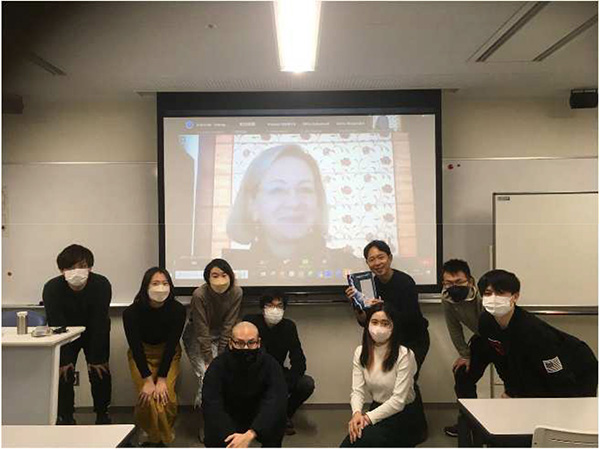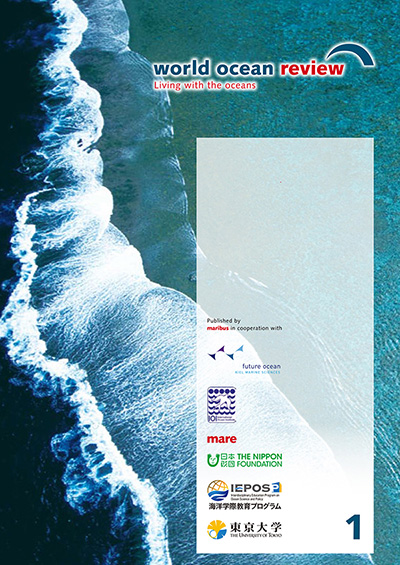Ocean Newsletter
No.543 March 20, 2023
-
Underwater Archaeology - Uncovering History from Shipwrecks at the Seafloor
YAMAFUNE Kotaro (Underwater Archaeology and Nautical Archaeology Researcher)
Underwater archaeology is the field of study that seeks to unravel the mysteries of history from ruins lying at the bottom of the sea. Born in the Mediterranean in the 1960s, this new branch of archaeology reveals unique episodes from our past. This article introduces the fascination behind sunken shipwrecks - a unique type of ruins - and the significance of researching them.
-
Citizen Science: An Approach towards Innovation and Examples Relating to the Ocean
KOBORI Hiromi (Distinguished Professor, Faculty of Environmental Studies, Tokyo City University)
The mission of citizen science is to bring about simultaneous change in science, education, and society through the involvement of citizens in the process of scientific research. We are at a turning point in history where individual and societal transformation is necessary. Citizen science is an effective approach for this. This article will introduce the importance of using citizen science both as a personal matter and a part of everyone's life, its methods, and examples of excellent practices relating to the ocean.
-
Cooperation Project between International Ocean Institute and the University of Tokyo
Antonella VASSALLO (Managing Director, International Ocean Institute Headquarters) / YAMAGUCHI Kensuke (Project Assistant Professor,Graduate School of Public Policy, The University of Tokyo)
The International Ocean Institute (IOI) founded by Elisabeth Mann Borgese in 1972 marked its 50th anniversary in 2022. As the year also represents a milestone for ocean governance, the University of Tokyo’s “Interdisciplinary Educational Program on Ocean Science and Policy” launched a project to translate the World Ocean Review (WOR), an IOI associated periodical, for the purpose of raising ocean literacy in Japan. This article introduces this collaborative project between IOI and the University of Tokyo.
Cooperation Project between International Ocean Institute and the University of Tokyo
The International Ocean Institute (IOI):
The International Ocean Institute (IOI) was founded by Elisabeth Mann Borgese in 1972 as an international non-governmental, not-for-profit organisation with special consultative status at the UN1. Most importantly, through its global annual capacity development programme, IOI works to uphold and expand the principle of the Common Heritage of Humankind as enshrined in the United Nations Convention on the Law of the Sea (UNCLOS).
To Elisabeth, the sea offered the best way to apply a set of ethical principles guiding humanity to the equitable use of natural resources. She instituted the Pacem in Maribus Conference series in 1970 and the IOI two years later. Nowadays IOI operates globally via an international network of Centres, Focal Points, Alumni and partnerships to create effective and knowledgeable future leaders in ocean governance.
In 2022, on the 50th anniversary of the establishment of IOI, the international Ocean community marks another major milestone of Ocean governance, namely the 40 years since adoption and opening for signature of UNCLOS by the Third UN Conference on the Law of the Sea in 1982.
These developments taken together have had far-reaching consequences towards the implementation of sound Ocean stewardship principles and the peaceful use of the Ocean, guided by the Principle of the Common Heritage of Humankind. They serve to underpin and strengthen the IOI’s core mission of capacity development in Ocean governance and complement IOI training held annually in Canada, China, Malta, South Africa, Thailand, Latin America, and Turkmenistan; and the Postgraduate Master of Arts degree in Ocean Governance. The launch in 2022 of the IOI’s Ocean Academy adds the dimension of Global Ocean Literacy For All to the goals of the IOI, a wonderful anniversary programme with which to celebrate IOI’s first 50 years.
All these opportunities aim to create knowledgeable leaders and practitioners in Ocean Governance and assist in uptake of that necessary knowledge, understanding, tools and processes required to achieve Agenda 2030 and a just and equitable governance of the Ocean. Through these efforts, over the years the IOI has empowered some 2,000 alumni from some 140 countries to embrace responsible Ocean leadership.
World Ocean Review (WOR):
Another notable contribution to the spread of Ocean Knowledge to all stakeholders is surely the World Ocean Review (WOR) series, of which the IOI is an important partner along with the multi-disciplinary Cluster of Excellence “The Future Ocean” of more than 200 scientists and mare – the magazine of the seas. The WOR is dedicated to raising the public’s awareness of Ocean interrelationships, contributing to a more effective protection of the seas.
In this respect, from the start the series has been designed to upgrade the Ocean literacy of the reader by providing an understanding of relevant information, highlighting the interlinkages between knowledge and science, Ocean-based economic activities, and the socio-cultural importance of interactions and dependence on the Ocean – in fact, the very pillars of sustainable development and sound Ocean governance.
The first seven titles delivered by the WOR Series respectively address Living with the Oceans, The Future of Fisheries, Marine Resources, Sustainable Use, Coasts, The Arctic and Antarctic, and The Ocean, Guarantor of Life. The solid partnerships ensure that this Series provides highly accessible, easy to follow, cross-referenced and updated knowledge to global readers and the publications are distributed free of charge, and easily downloaded from the Series website.2
In this special year for the IOI, it is with great pleasure that I write these words to acknowledge the admirable efforts of Dr Kensuke Yamaguchi and U Tokyo “Interdisciplinary Educational Program on Ocean Science and Policy” to make the first World Ocean Review - Living with the Oceans - available also to a new audience of Japanese-language readers. I am sure that this will provide knowledge that will be enjoyed for years to come by a more Ocean literate society.
Other benefits also accrue to the cohorts of University students engaged in the translation of this book, who bring their new awareness of the interconnectedness of the Ocean, the planet’s biosphere and climate, the blue economy, and humankind, to their careers on graduation and beyond. We recognise in them a new generation of Ocean leaders in the making, able to engage actively and knowledgably in debate and policy-making on these inextricably linked Ocean issues.
Translation in Japan: an experience in “Ocean Policy of Technology and Science”
In consideration of the mutual benefits between us, the student translation team was launched in the “Ocean Policy of Technology and Science” class in 2021. When the team translated and cross-checked each manuscript, the team has deepened its understanding on ocean literacy in a comprehensive manner. The aspects of ocean are connected, which makes it difficult for us to understand only from a certain discipline. Recognizing the importance of interdisciplinary approaches, the team has naturally deepened its ties inside. Eventually attaining profound feedback from first-class experts, the translation has been completed in the end of 20223.
Through using it as a text in the “Ocean Policy of Technology and Science” class in 2022, we have realized what is to be edited. First, the text should be based on the most recent ocean science. For the text originally published in 2021. Second, assuming the Japanese audience, the text should include the examples in Japan and the East Asia. Currently, it rather focuses on the cases in Europe. Under the UN decade of ocean science (2021-2030), we do hope the text is revised accordingly. In this way, we are proud to stand in partnership with this community to seed a culture of responsibility and policies of reason and to achieve an equitable and sustainable relationship with our mother Ocean.

The final class of “Ocean Policy of Technology and Science” in 2022

World Ocean Review 1(Japanese Ver.)
2. https://worldoceanreview.com/en/
3. See the completed translation: https://www.oa.u-tokyo.ac.jp/news/images/WOR_B5WEB%20(最終).pdf
